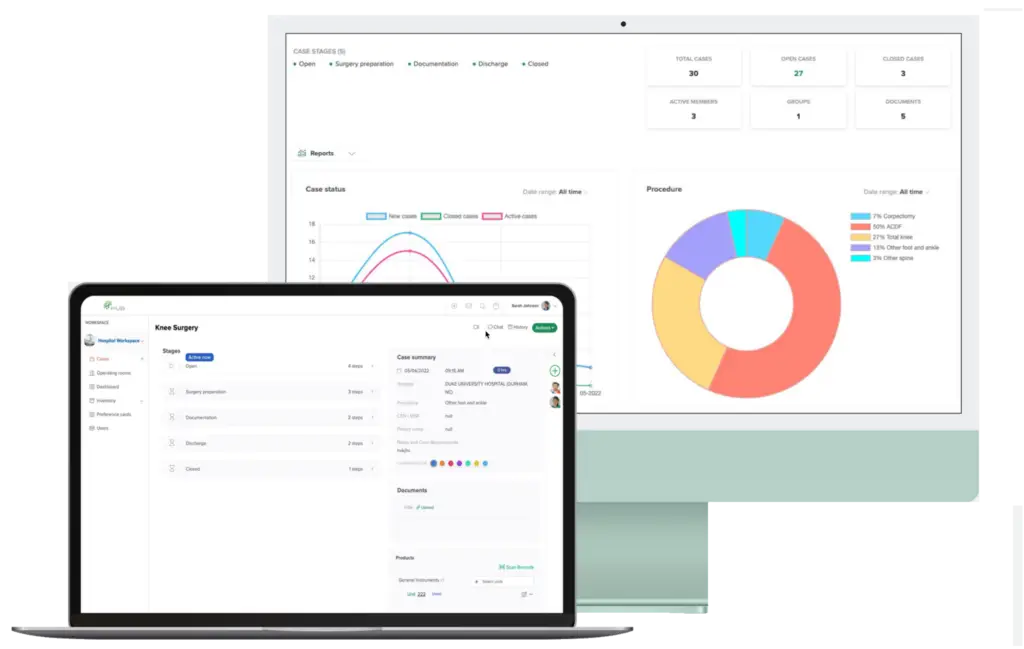When it comes to distributing medical devices, choosing the right distributor is crucial for the success of your product. A distributor can help you reach new markets, increase sales, and provide valuable insights into the industry. However, before signing a contract with a medical device distributor, there are several important considerations to keep in mind. In this article, we will discuss the key contract considerations when hiring a medical device distributor.
Understanding the Role of a Medical Device Distributor
Before diving into contract considerations, it is important to understand the role of a medical device distributor. A distributor is a third-party company that buys medical devices from manufacturers and sells them to healthcare providers, such as hospitals, clinics, and pharmacies. They act as a middleman between the manufacturer and the end-user, and their main goal is to increase sales and market share for the products they distribute.
Distribution Rights and Territories
One of the most important contract considerations when hiring a medical device distributor is the distribution rights and territories. This refers to the specific regions or countries where the distributor is authorized to sell your product. It is important to clearly define these rights and territories in the contract to avoid any confusion or conflicts in the future.
For example, if you have a distributor in the United States and another in Europe, you need to specify which distributor has the rights to sell in which region. This will prevent any overlap or competition between the two distributors and ensure that each distributor has a clear understanding of their responsibilities.
Exclusivity
Another important consideration is whether the distributor will have exclusive rights to sell your product in a specific region or market. This means that no other distributor or sales channel will be allowed to sell your product in that region. Exclusivity can be beneficial for both parties as it gives the distributor a competitive advantage and ensures that the manufacturer’s product is the only one being promoted in that market.
However, exclusivity can also limit the manufacturer’s ability to expand into new markets or work with other distributors. It is important to carefully consider the pros and cons of exclusivity before including it in the contract.
Sales Targets and Performance Metrics
To ensure that the distributor is actively promoting and selling your product, it is important to set sales targets and performance metrics in the contract. This will help you track the distributor’s progress and hold them accountable for meeting their sales goals.
Sales targets can be based on a specific number of units sold, revenue generated, or market share gained. Performance metrics can include factors such as customer satisfaction, product knowledge, and marketing efforts. It is important to regularly review and adjust these targets and metrics to ensure that they are realistic and achievable.
Payment and Pricing
Another crucial aspect of the contract is the payment and pricing terms. This includes the price the distributor will pay for the product, the payment schedule, and any discounts or incentives offered.
Wholesale Price
The wholesale price is the price that the distributor pays for the product. This price should be negotiated and agreed upon before signing the contract. It is important to consider factors such as production costs, market demand, and competitor pricing when determining the wholesale price.
Payment Schedule
The payment schedule outlines when and how the distributor will pay for the products they receive. This can include upfront payments, installment payments, or payment upon delivery. It is important to clearly define the payment schedule to ensure that both parties are on the same page and there are no delays or misunderstandings.
Discounts and Incentives
To incentivize the distributor to sell more of your product, you may want to offer discounts or other incentives. This can include volume discounts, bonuses for meeting sales targets, or marketing support. These discounts and incentives should be clearly outlined in the contract to avoid any confusion or disputes in the future.
Marketing and Promotion
A key responsibility of a medical device distributor is to promote and market the product to potential customers. Therefore, it is important to include marketing and promotion terms in the contract.
Marketing Plan
The contract should outline the distributor’s marketing plan, including the strategies and tactics they will use to promote the product. This can include trade shows, advertising, social media, and other promotional activities. It is important to review and approve the marketing plan before signing the contract to ensure that it aligns with your brand and goals.
Marketing Materials
The distributor will also need access to marketing materials, such as brochures, product images, and videos, to effectively promote the product. It is important to provide these materials to the distributor and ensure that they are up-to-date and consistent with your brand.
Co-Marketing Opportunities
To further strengthen the relationship between the manufacturer and the distributor, co-marketing opportunities can be included in the contract. This can include joint marketing campaigns, co-branded materials, and cross-promotion. Co-marketing can be a powerful tool for increasing brand awareness and driving sales.
Termination and Renewal
No matter how well you plan and negotiate, there may come a time when you need to terminate the contract with a medical device distributor. Therefore, it is important to include termination and renewal terms in the contract.
Termination Clause
The termination clause outlines the conditions under which the contract can be terminated. This can include factors such as failure to meet sales targets, breach of contract, or changes in market conditions. It is important to clearly define these conditions to avoid any confusion or disputes in the future.
Renewal Options
The contract should also include options for renewal. This can include automatic renewal, renewal upon mutual agreement, or the option to renegotiate the terms of the contract. It is important to discuss and agree upon these options before signing the contract to ensure that both parties are satisfied with the terms.
Legal Considerations
Finally, it is important to consider the legal aspects of the contract. This includes factors such as liability, indemnification, and intellectual property rights.
Liability and Indemnification
The contract should clearly outline the liability of each party in case of any legal disputes or issues. This can include factors such as product defects, injuries caused by the product, or breach of contract. It is important to clearly define these terms to protect both parties in case of any legal action.
Intellectual Property Rights
Intellectual property rights are crucial when it comes to medical devices. The contract should clearly outline who owns the intellectual property rights for the product and how they can be used by the distributor. This can include trademarks, patents, and copyrights.
Conclusion
Hiring a medical device distributor can be a beneficial partnership for both the manufacturer and the distributor. However, it is important to carefully consider and negotiate the terms of the contract to ensure a successful and mutually beneficial relationship. By understanding the role of a distributor and considering factors such as distribution rights, payment terms, and legal considerations, you can create a strong and effective contract that will help your product reach its full potential in the market.
HUB Healthcare
HUB Healthcare provides a comprehensive solution designed to enhance communication in healthcare, streamline care coordination, and improve overall workflow efficiency. Our platform includes features such as medical case management software, healthcare document management, and healthcare analytics to ensure that all aspects of patient care are optimized. By leveraging HUB Healthcare’s robust tools, organizations can reduce workflow bottlenecks, automate repetitive tasks, and facilitate better collaboration among healthcare providers. This not only improves work quality but also enhances patient outcomes, making HUB Healthcare an essential partner in achieving healthcare excellence.
Visit our Help Center – Here







